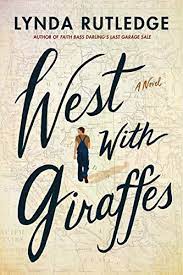Ng, Celeste. Our Missing Hearts. New York: Penguin. 2022. Print.
First Sentences:
The letter arrives on a Friday. Slit and resealed with a sticker, of course, as all their letters are: Inspected for your safety --- PACT. It had caused confusion at the post office, the clerk unfolding the paper inside, studying it, passing it up to his supervisor, then the boss. But eventually it had been deemed harmless and sent on its way. No return address, only a New York, NY postmark, six days old. On the outside, his name -- Bird -- and because of this he knows it is from his mother.
Description:
Seems like almost every week lately I have come across a new book that makes my top 10 all time list. Such was the case with Celeste Ng's Our Missing Hearts, a story that often hints at our current fearful society today in America and its repercussions on the people who must bend their lives to accommodate restrictive rules, government, and even neighbors intolerant of anything not patriotic or accepting of their new world.
You see, 12-year-old Noah (Byrd) Gardner lives in the United States under the laws created and enforced for the past ten years by PACT (The Preserving American Cultures and Traditions Act). These patriotism laws were overwhelming enacted in response to the worldwide Crisis, an international depression with joblessness, poverty, inflation, and ensuing riots. It was determined, without evidence, to have been brought on by the Chinese government and its people.
The Three Pillars of PACT: Outlaws promotion of un-American values and behavior: Requires all citizens to report potential threats to our society. Protects children from environments espousing harmful views.
Therefore, PACT forces everyone to promise allegiance, support, and love for the American government, while ostracizing anyone not meeting these goals in action or speech. Neighborhood Watch groups are everywhere, seeking out dissident opinions of actions and, if found, intensively questioning (or removing) the suspects.
Children can be forcibly taken from homes of parents determined to be a bad influence and relocated to more suitable couples, never to be allowed to communicate with their biological parents. There are no protests of this action by parents since any questioning would contribute to the suspected parents' anti-PACT leanings, risking the real possibility that the children might never be returned.
Bird's mother had left him and his father three years earlier, never letting him know she was leaving and never corresponding with him until this note. It was a mysterious single sheet of paper without any words, filled with multiple drawings of cats and a tiny cupboard.
Margaret, Byrd's mother, was a noted poet who had written the line "All our missing hearts" in one of her obscure poems. With these words, she had inadvertently created a slogan, a rallying phrase, that was taken up by an underground anti-PACT network. Her words appeared scrawled on walls, on signs, and other locations as the network tried to raise awareness of the seized children.
Margaret, despite knowing nothing about this loose organization, chooses to leave her home and go into hiding, protecting her husband Ethan and son who must now disavow all ties to her, her and especially her writing to insure Byrd (now called Noah) is not taken from his father as an "unsuitable influence."
With this new note, however, Noah takes on the challenge to find out more about his mother and hopefully locate her.
Along the way, we read of Margaret's backstory, her life with Ethan, her word-loving husband and Noah's father, and the life she chooses to pursue while in hiding. Along with other notable friends, enemies, and "citizens" looking for any misstep by neighbors, Our Missing Hearts is both a gripping and heartfelt story, one filled with seeming hopelessness against a government of fear, and yet containing a glimmer of hope from individuals trying to survive and make a difference in a twisted world.
Yes, yes, yes, I would recommend this book. It's a mystery, a warning, a breath of hope, and a gripping tale celebrating family strength. It's a book of friendship and secrets, fanaticism and consequences. But most of all, it is a deeply personal tale of perseverance toward achieving personal goals in order to understand one's self and the world, and how those two fit together now and in the future. Highest recommendation.
Happy reading.
____________________
If this book interests you, be sure to check out:
The classic and still important story of a totalitarian society and one man who tries to fight back.










